- Home Page
- Company Profile
-
Our Products
- Fiberglass and Insulation Sleeves
- Fire Resistant Sleeve
- Insulation Sleeves
- Polyester Expandable Braided Sleeves
- SRBP Tubes
- Polyurethane Fiberglass Sleeves 1.5 kv
- Acrylic Fiberglass Sleeving
- Varnished Fiberglass Sleeve F Class
- Fire Sleeves
- Polyurethane Fiberglass Sleeve
- PVC Coated Fiberglass Sleeve
- Silicone Coated Fiberglass Sleeve
- Polyurethane Coated Fiberglass Sleeves
- Fiberglass Sleeve ( China Sleeve )
- Fiberglass Sleeving B Class
- Nomex Paper and Electrical Insulation Papers
- Laminated Fleece Paper
- Eurotherm Laminated Nomex Paper NPN
- Pure Aramid Paper
- Electrical Insulating Paper
- Laminated Aramid Paper
- Saturated Fleece Paper
- DuPont Nomex Paper
- Saturated Fleece Paper
- Insulating Kraft Paper
- Insulation Pressboard
- Laminated Nomex
- Electrical Insulation Papers and Laminates
- Pure Aramid (Nomex) Paper
- Laminated Fleece
- Black Kraft Paper
- Amotforse Brown Kraft Paper
- Diamond dotted Paper
- Fiberglass and Insulated Cables
- Glass Epoxy Sheets and Wedges
- Varnishes and Thinners
- Electrical Insulation Tapes
- Electrical Insulation Sheets and Fabrics
- PTFE Wire
- Silicon Cable
- Insulation Film
- Fiberglass and Insulation Sleeves
- Certificates
- Contact Us
Silicone Coated Fiberglass Sleeve
2.0 INR/Meter
Product Details:
- Coating Type PVC extrusion over braided fiberglass
- Layer Single braided fiberglass with PVC coating
- Density Industrial standard Gram per cubic centimeter(g/cm3)
- Installation Guideline Easy to cut, slide-on installation for cables and windings
- Product Type Fiberglass Sleeve
- Rated Voltage 1.5 kV 7 kV (based on thickness & coating) Ampere (A)
- Tensile Strength High flexibility and mechanical strength Newtons per Millimetre Squared (N/mm2)
- Click to view more
X
Silicone Coated Fiberglass Sleeve Price and Quantity
- 2.0 INR/Meter
- 1 Meter
Silicone Coated Fiberglass Sleeve Specification
- Single braided fiberglass with PVC coating
- 1.5 kV 7 kV (based on thickness & coating) Ampere (A)
- Fiberglass Sleeve
- Industrial standard Gram per cubic centimeter(g/cm3)
- White, Black, Yellow
- High flexibility and mechanical strength Newtons per Millimetre Squared (N/mm2)
- Fiberglass Sleeve
- PVC extrusion over braided fiberglass
- Up to 7 kV Ampere (A)
- 0.2 mm 2.5 mm (standard range) Millimeter (mm)
- Cable harness protection Electrical motors and household appliances Transformers, lighting fixtures, and panels Automotive wiring and industrial machinery
- Features: Excellent electrical insulation properties High flexibility and abrasion resistance Resistant to oil, moisture, and most chemicals Smooth finish for easy cable bundling Cost-effective insulation solution Usage & Applications: Cable harness protection Electrical motors and household appliances Transformers, lighting fixtures, and panels Automotive wiring and industrial machinery
- Easy to cut, slide-on installation for cables and windings
- As required Millimeter (mm)
- Low, excellent thermal insulation Watt/Meter/K (w/(m.k)
- -40 C to +125 C (PVC grade)
- Silicone / PVC Coated Fiberglass
Silicone Coated Fiberglass Sleeve Trade Information
- 3 Days
- Australia, Central America, South America, Western Europe, Middle East, Africa, Asia, North America, Eastern Europe
- All India
Product Description
For the purpose of providing electrical insulation, mechanical strength, and resistance to high temperatures and environmental variables for wires, cables, and hoses, silicone coated fibreglass sleeves, also referred to as silicone coated fibreglass tubing, are a protective coating. This sleeves construction involves applying a layer of silicone rubber to a braided or woven fibreglass substrate, creating a flexible and robust protective solution.
Characteristics of Silicone Coated Fiberglass Sleeve:
1. Heat Resistance: Silicone-coated fiberglass sleeves are highly heat-resistant and can withstand high temperatures without degrading or catching fire. They are typically rated for continuous use at temperatures ranging from -65 to 260 degree centigrade.
2. Flame Retardant: The silicone coating provides flame-retardant properties, making these sleeves suitable for applications where fire safety is a concern.
3. Electrical Insulation: These sleeves offer excellent electrical insulation properties, making them ideal for protecting wires and cables in electrical and electronic applications. They help prevent electrical shorts and provide a barrier against moisture and contaminants.
4. Chemical Resistance: Silicone-coated fiberglass sleeves are generally resistant to many chemicals, oils, and solvents, which enhances their durability and suitability for a wide range of industrial environments.
5. Flexibility: They are flexible and easy to install, allowing for the protection of wires and cables in tight or irregularly shaped spaces.
6. Abrasion Resistance: The silicone coating provides a protective layer that helps resist abrasion and wear, extending the lifespan of the sleeve and the components it covers.
7. UV Resistance: Some silicone-coated fiberglass sleeves are designed to be UV-resistant, making them suitable for outdoor and sun-exposed applications.
8. Non-Stick Surface: Silicone has a naturally non-stick surface, which can make it easier to slide sleeves over cables and wires during installation.
9. Easy to Clean: Silicone-coated sleeves are relatively easy to clean and maintain, which is important for applications where cleanliness is crucial.
10. Customizable Sizes: These sleeves are available in various sizes and can be easily cut to the desired length, making them adaptable to different cable diameters and lengths.
11. Excellent Dielectric Strength: They have high dielectric strength, which is important for electrical insulation and preventing electrical leakage.
12. Resistant to Fungus and Mold: Silicone-coated fiberglass sleeves are typically resistant to fungus and mold growth, which can be beneficial in humid or damp environments.
13. Durable: These sleeves are known for their durability and longevity, even in demanding industrial settings.
14. Good Thermal Stability: Silicone maintains its properties over a wide temperature range, ensuring that the sleeves performance remains consistent.
15. Eco-Friendly: Silicone-coated fiberglass sleeves are often considered environmentally friendly as they are free from hazardous materials like asbestos and do not emit harmful gases when exposed to high temperatures.
Applications of Silicone Coated Fiberglass Sleeve:
1. Electrical and Electronics Industry:
- Wire and Cable Protection: These sleeves are used to insulate and protect wires and cables from heat, abrasion, moisture, and chemicals. They are commonly found in the aerospace, automotive, and telecommunications sectors.
- Motor and Generator Insulation: Silicone-coated fiberglass sleeves help insulate and protect electrical components like motor windings and generator coils from extreme temperatures and electrical stress.
2. Automotive Industry:
- Automotive Wiring Harnesses: Silicone-coated sleeves provide thermal and abrasion protection to wiring harnesses in vehicles, ensuring the reliable performance of electrical systems.
3. Aerospace Industry:
- Aircraft Wiring: These sleeves are used to protect critical wiring and harnesses in aircraft from extreme temperatures and mechanical stress, contributing to the safety and reliability of aerospace systems.
4. Industrial Applications:
- Hydraulic and Pneumatic Hoses: Silicone-coated fiberglass sleeves are used to protect hydraulic and pneumatic hoses from heat, abrasion, and chemicals in industrial machinery.
- Thermal Insulation: They are employed as thermal insulation in industrial equipment, such as ovens, furnaces, and heat exchangers.
- Steam and Gas Lines: In industrial settings, these sleeves help protect steam and gas lines from extreme temperatures and harsh environments.
5. Marine Industry:
- Marine Wiring: Silicone-coated sleeves are used to protect wiring and cables on ships and offshore platforms, where they must withstand saltwater exposure and harsh weather conditions.
6. Renewable Energy:
- Solar Panels: These sleeves protect wiring and connections in solar panels, which are exposed to outdoor elements and temperature fluctuations.
7. Medical Devices:
- Medical Equipment Wiring: In medical devices and equipment, silicone-coated fiberglass sleeves offer electrical insulation and protection for wires and cables.
8. HVAC (Heating, Ventilation, and Air Conditioning):
- Ductwork Insulation: They are used to insulate and protect HVAC ductwork from temperature fluctuations and condensation.
9. Food and Beverage Industry:
- Food Processing Equipment: In food manufacturing, these sleeves are used to protect wiring and cables in machinery exposed to high-temperature cleaning processes.
10. General Industrial and Commercial Use:
- Wiring and Cable Management: Silicone-coated sleeves can be used in various industrial and commercial settings to organize and protect cables and wires in an organized and safe manner.
- Thermal Protection: They are employed for thermal protection of hoses, pipes, and cables in a wide range of applications.
11. DIY and Home Improvement:
- Home Electronics: In DIY and home improvement projects, these sleeves can be used to protect and organize cables and wires in entertainment systems, computers, and other electronics.
12. Laboratory Equipment:
- Laboratory Wiring: In research and laboratory settings, silicone-coated sleeves provide insulation and protection for wires and cables used in sensitive equipment.
Silicone Coated Fiberglass Sleeve FAQ:
1. What is a silicone-coated fiberglass sleeve?
Ans: A silicone-coated fiberglass sleeve is a protective covering made of a flexible fiberglass braided sleeve that is coated with a layer of silicone rubber. It is used to provide heat resistance, electrical insulation, and protection against various environmental factors.
2. What are the primary advantages of using silicone-coated fiberglass sleeves?
Ans: The main advantages include high-temperature resistance, electrical insulation, flexibility, durability, and resistance to abrasion, chemicals, and moisture. They are also easy to install and maintain.
3. What temperatures can silicone-coated fiberglass sleeves withstand?
Ans: Silicone-coated fiberglass sleeves are typically rated for continuous use at temperatures ranging from -65 to 260 degree centigrade.
4. Where are silicone-coated fiberglass sleeves commonly used?
Ans: They are used in various industries, including electrical and electronics, automotive, aerospace, industrial manufacturing, marine, renewable energy, and more, for wire and cable protection, insulation, and thermal management.
5. Can I cut silicone-coated fiberglass sleeves to a custom length?
Ans: Yes, these sleeves are typically easy to cut to the desired length using scissors or a sharp utility knife, allowing you to customize them for your specific application.
6. Are silicone-coated fiberglass sleeves resistant to chemicals?
Ans: Yes, they are generally resistant to many chemicals, oils, and solvents, making them suitable for use in environments where exposure to such substances may occur.
7. How do I install silicone-coated fiberglass sleeves on wires or cables?
Ans: To install these sleeves, simply slide them over the wires or cables you want to protect. They have a naturally non-stick surface due to the silicone coating, which makes installation easier.
8. Are there different sizes and colors available?
Ans: Yes, silicone-coated fiberglass sleeves come in various sizes to accommodate different cable diameters and lengths. While they are often available in standard colors like red, black, and white, color options can vary depending on the manufacturer.
9. Do silicone-coated fiberglass sleeves provide electrical insulation?
Ans: Yes, they offer excellent electrical insulation properties and are commonly used to insulate wires and cables to prevent electrical shorts and leakage.
10. Can these sleeves be used outdoors or in UV-exposed environments?
Ans: Some silicone-coated sleeves are designed to be UV-resistant, making them suitable for outdoor applications. However, its essential to check the product specifications to ensure they meet your specific requirements.
11. Are silicone-coated fiberglass sleeves environmentally friendly?
Ans: They are often considered environmentally friendly as they do not contain hazardous materials like asbestos and do not emit harmful gases when exposed to high temperatures.
12. Can these sleeves be used in food processing equipment?
Ans: Yes, silicone-coated fiberglass sleeves are used in the food and beverage industry to protect wiring and cables in equipment exposed to high-temperature cleaning processes.
13. Do they require any special maintenance?
Ans: Silicone-coated fiberglass sleeves are relatively low-maintenance. They can be wiped clean if necessary, but in general, they are designed to be durable and long-lasting without requiring frequent maintenance.
Superior Insulation and Protection
This fiberglass sleeve delivers dependable insulation for electrical applications, thanks to its combination of braided fiberglass core and protective silicone or PVC coating. Its excellent flexibility and mechanical strength enable robust performance in automotive, household, industrial, and transformer environments. The product provides a smooth finish, ensuring hassle-free cable bundling and versatile compatibility.
Cost-Effective and Versatile Solution
Designed to meet diverse cable harness and protection needs, the sleeve offers a cost-effective alternative to traditional insulation methods. Its adaptability in width, thickness, and color (white, black, yellow) allows for tailored solutions across machinery, lighting fixtures, household appliances, and industrial transformers. The IP20 rating ensures reliable safety when used as cable insulation.
FAQs of Silicone Coated Fiberglass Sleeve:
Q: How is the Silicone/PVC Coated Fiberglass Sleeve installed on cables or windings?
A: The sleeve is easily cut to required length and slid over the cables or windings. Its flexibility allows for fast installation without specialized tools, making it ideal for both industrial and domestic electrical work.Q: What benefits does the silicone/PVC coating provide for fiberglass sleeves?
A: The silicone or PVC coating enhances electrical insulation, mechanical strength, and abrasion resistance. It also offers oil, moisture, and chemical resistance, extending product durability and ensuring safety in various environments.Q: When should I choose a Silicone/PVC Coated Fiberglass Sleeve for my application?
A: Opt for this sleeve when your cables require protection from harsh conditions, high electrical insulation, and flexibility. Typical use cases include automotive wiring, household appliances, electrical motors, industrial machinery, and transformer panels.Q: Where is this coated fiberglass sleeve commonly used?
A: Its main applications include cable harness protection in automotive, electrical motors, household appliances, transformers, lighting fixtures, panels, and industrial machineryanywhere robust insulation and mechanical stress resistance is needed.Q: What is the process for manufacturing the coated fiberglass sleeve?
A: The sleeve is created by braiding fiberglass fibers, followed by applying a silicone or PVC coating through extrusion. This single-layer coating ensures uniformity and strong bonding for enhanced protection and reliability.Q: How does this sleeve offer cost-effective insulation compared to other solutions?
A: The combination of high performance, durability, and easy installation reduces labor and replacement costs. Its effective protection minimizes risk of electrical failures, making it a budget-friendly choice for various industries.Q: What is the maximum temperature and voltage that the sleeve can withstand?
A: For PVC grade sleeves, the temperature range is -40C to +125C, while rated voltage can be anywhere from 1.5 kV to 7 kV, depending on thickness and coating. Always select the specification best suited for your application requirements.Tell us about your requirement

Price:
Quantity
Select Unit
- 50
- 100
- 200
- 250
- 500
- 1000+
Additional detail
Mobile number
Email

 Send Email
Send Email 
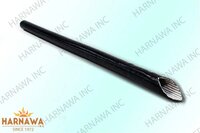
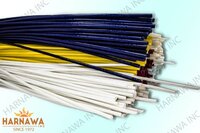
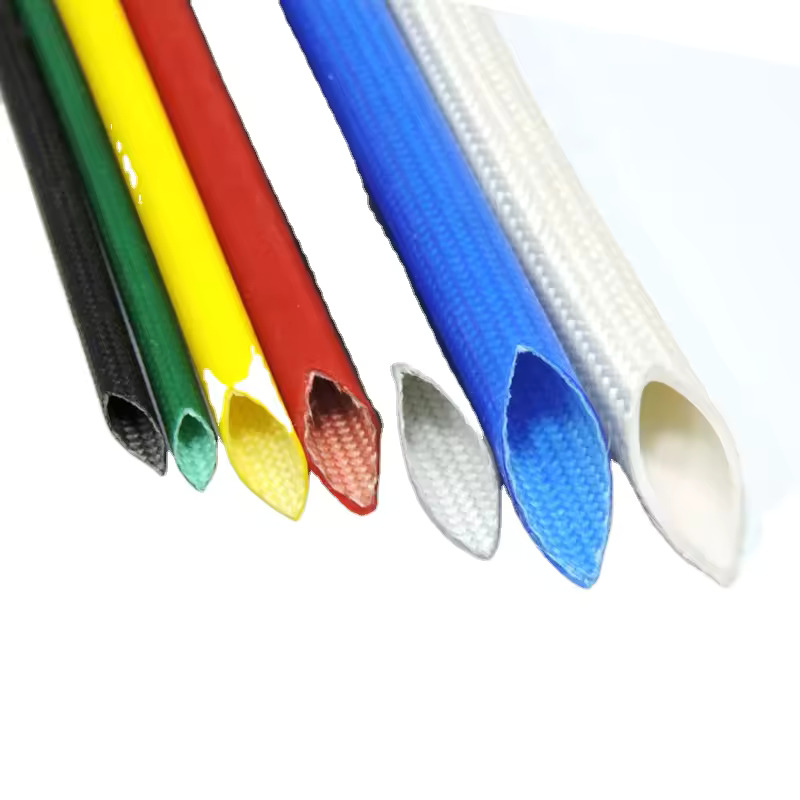
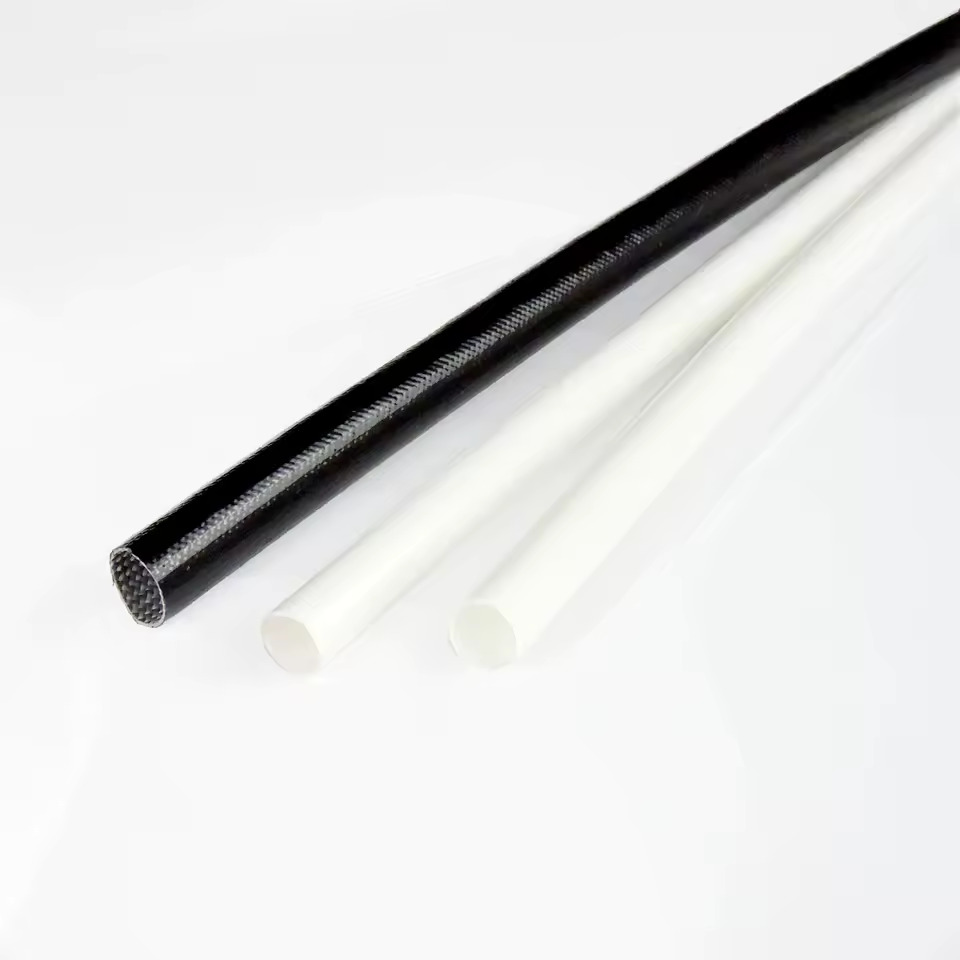
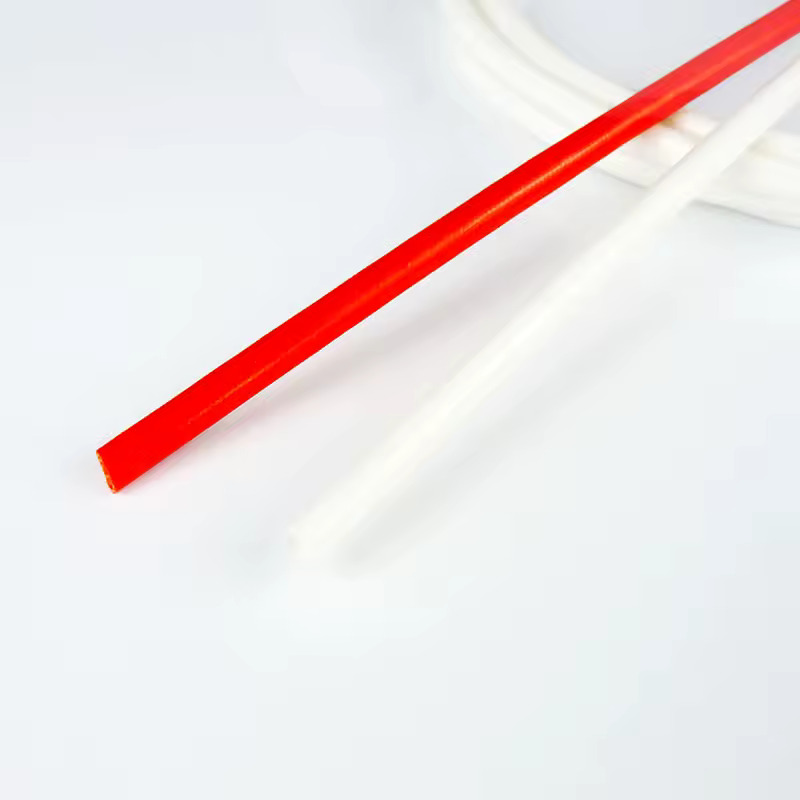
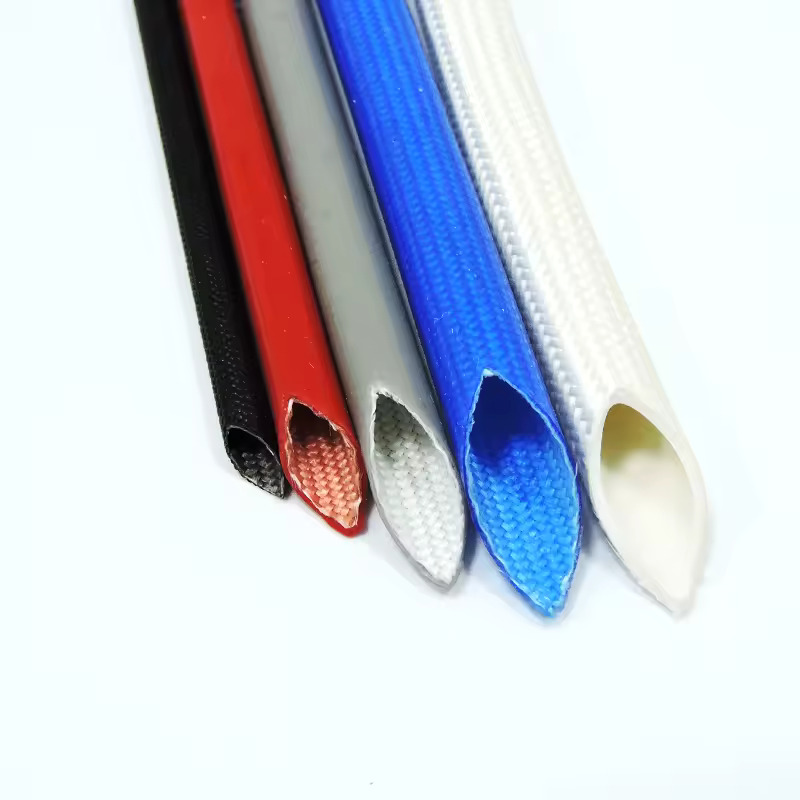









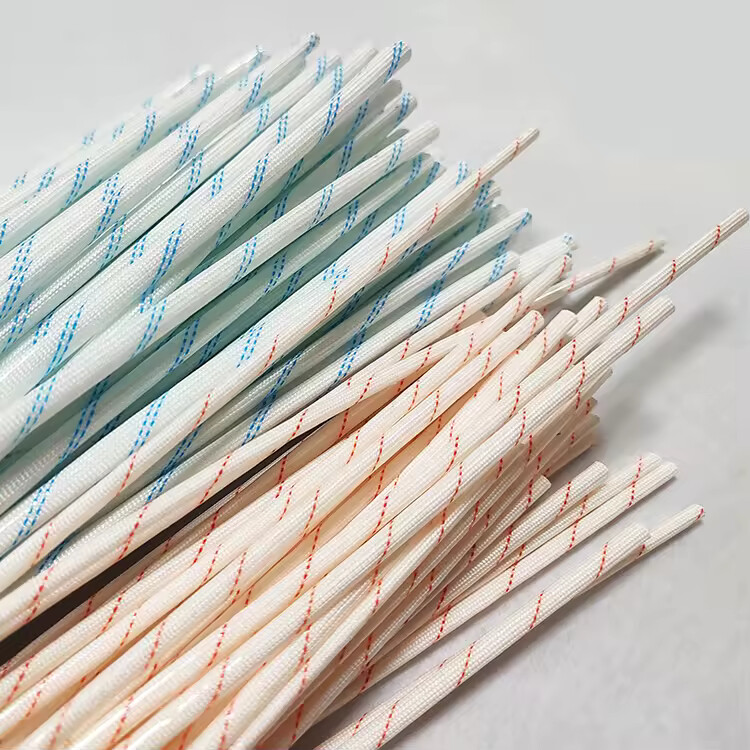
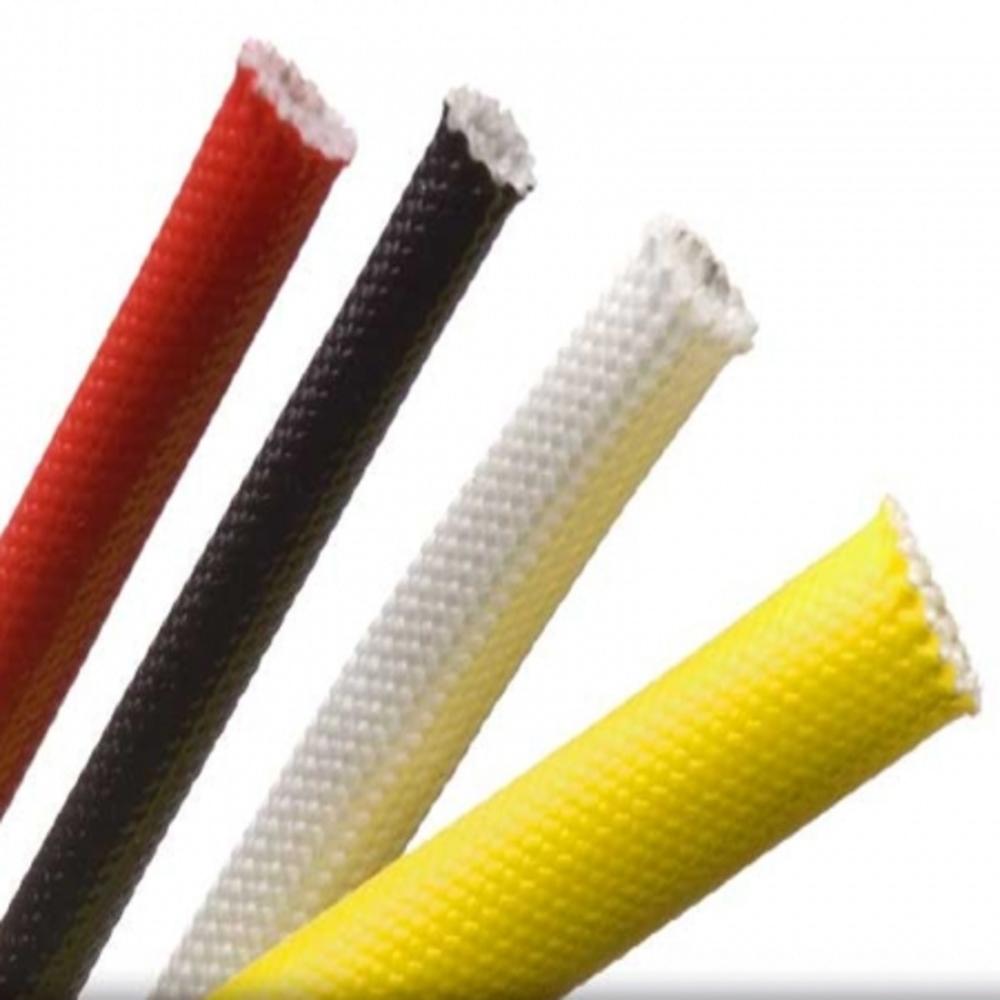


 Send Inquiry
Send Inquiry Send SMS
Send SMS Call Me Free
Call Me Free
 English
English Spanish
Spanish French
French German
German Italian
Italian Chinese (Simplified)
Chinese (Simplified) Japanese
Japanese Korean
Korean Arabic
Arabic Portuguese
Portuguese